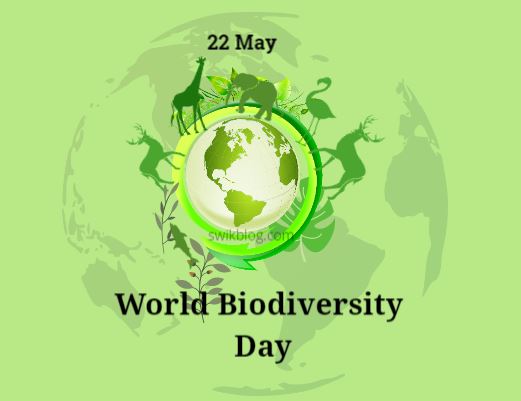International days and weeks serve as valuable opportunities to educate the public, mobilize political will, allocate resources to address global problems and celebrate humanity’s achievements.
These observances existed even before the establishment of the United Nations, but the UN has embraced them as powerful advocacy tools.
Additionally, the UN recognizes and commemorates various other observances to further its mission.
Alarming statistics underscore the urgency to prioritize biodiversity conservation.
According to the World Wildlife Fund (WWF), the Earth has lost 68% of its global wildlife population since 1970.
This dramatic decline is primarily driven by human activities such as deforestation, habitat destruction, pollution, overfishing, and the illegal wildlife trade.
It is estimated that one million species are currently at risk of extinction, posing a severe threat to the delicate balance of our planet’s ecosystems.
The implications of biodiversity loss extend far beyond environmental concerns. There are profound economic and social consequences as well.
The Intergovernmental Science-Policy Platform on Biodiversity and Ecosystem Services (IPBES) estimates that pollinators’ services’ annual global economic value of pollinators’ services alone ranges from $235 billion to $577 billion.
This includes the pollination of crops that form the backbone of our food systems. A decline in pollinator populations directly affects agricultural productivity and food security, exacerbating existing challenges in feeding a growing global population.
Moreover, indigenous peoples and local communities who have traditionally coexisted with nature and relied on biodiversity for their sustenance face significant disruptions to their ways of life due to biodiversity loss.
Their profound knowledge of ecosystems and their stewardship practices contribute to the preservation of biodiversity and the sustainable use of natural resources.
Recognizing their rights, empowering their voices, and involving them in conservation efforts are essential for effective and equitable biodiversity protection.
To address the complex challenges of biodiversity loss, the Kunming-Montreal Global Biodiversity Framework provides a roadmap for action.
The framework outlines targets and indicators across multiple sectors, including agriculture, forestry, fisheries, tourism, and urban planning, emphasizing the need for integrated approaches.
It calls for increased investment in nature-based solutions, restoration of degraded ecosystems, sustainable natural resource management, and mainstreaming biodiversity considerations into policies and decision-making processes.
Building back biodiversity requires concerted efforts from all stakeholders, including governments, businesses, civil society organizations, and individuals.
It demands a paradigm shift in our relationship with nature, recognizing that biodiversity is not just a luxury but a necessity for survival and well-being.
Sustainable consumption and production patterns, responsible business practices, and promoting nature-based solutions are crucial steps towards a more harmonious and resilient coexistence with the natural world.
As we celebrate the International Day for Biological Diversity, let us reflect on biodiversity’s immense value for present and future generations.
Let us commit to taking concrete actions to protect and restore the biological wealth of our planet. By doing so, we can ensure a sustainable future where ecosystems thrive, species flourish, and humanity coexists in harmony with nature.
Dr. Cristiana Paşca Palmer, Executive Secretary of the CBD, said, “Biodiversity is the lifeblood of our planet and the foundation for our economies, food systems, health, and future well-being.
It’s time for us to step up and take decisive action to build back biodiversity, ensuring a resilient and sustainable world for generations to come.”
The International Day for Biological Diversity reminds us that our collective efforts can make a significant difference.
Let us embrace this opportunity to raise awareness, inspire action, and work hand in hand towards a future where biodiversity thrives, and our relationship with the natural world is one of harmony and respect

















